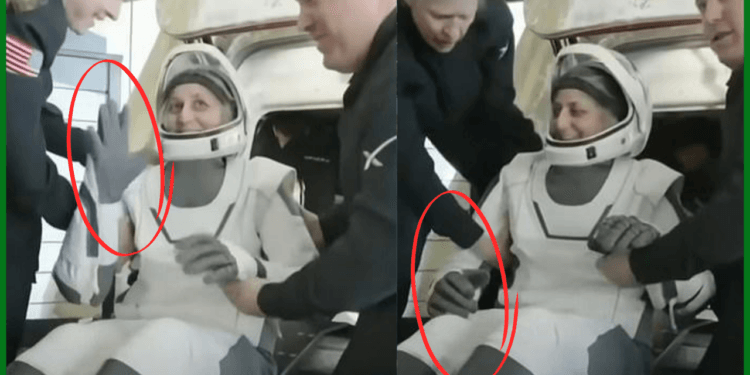CAPE CANAVERAL: When NASA astronaut Sunita Williams emerged from her SpaceX Dragon capsule off Florida’s coast on March 18, 2025, after 286 days in space, her smile and wave reassured the world she was well. But a subtle clue caught the eye of health experts: as she was stretchered away, her right arm went limp, flopping heavily against her thighs—a telltale sign of the physical toll of prolonged zero-gravity exposure.
Williams, 59, and her crewmate Butch Wilmore returned after an extended mission on the International Space Station. Doctors analyzing footage told DailyMail.com that her limp arm likely signals muscle wasting, a common effect of microgravity where the body doesn’t need to work as hard to maintain posture. “Muscles atrophy in space because there’s no resistance from gravity,” explained Dr. Stanton Gerson, a researcher on deep space’s cellular impacts. He noted Williams appeared frailer than Wilmore, possibly due to women’s generally lower muscle mass, making them more vulnerable to such loss.
The heart, too, may shrink in space, as it exerts less effort to pump blood without gravity’s pull. Experts also pointed to Williams’ thin wrists, hinting at potential weight loss. Yet, her ability to lift her arm at all was a positive sign, per Dr. Vin Gupta, an Air Force surgeon: “If she can elevate her arm, she should be okay.” Gerson estimated muscle loss in the single digits percentage-wise, calling it “minimal” based on past missions, with recovery expected within one to three months.
Williams’ unsteadiness may also stem from inner ear changes, where fluid shifts in microgravity disrupt balance, causing vertigo upon return. “The inner ear evolves for Earth’s gravity,” Gerson said, noting this can lead to a spinning sensation. Add in the grueling 25-hour journey home—eight hours of pre-flight checks and 17 hours of travel—and exhaustion likely compounded her condition. “She’s a happy, tired astronaut,” he added, likening it to post-transatlantic flight fatigue.
Studies show long space stints can also shrink the brain and swell the eyes due to fluid shifts, though no permanent health issues have been recorded. Some astronauts report temporary “brain fog,” clearing within days to weeks. For Williams, the road to recovery begins, but her limp arm underscores the silent battle astronauts face after defying gravity for so long.

















































